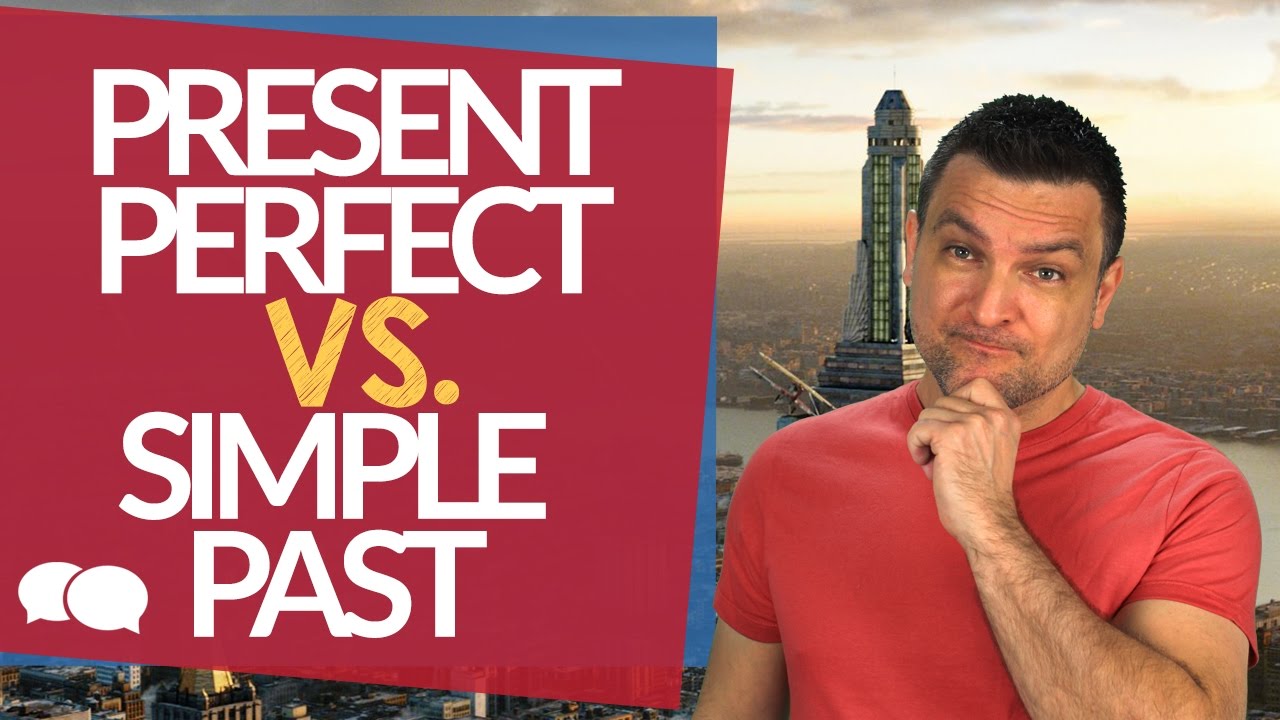Hello friends and welcome back to another post!
Hoje veremos mais a respeito de present perfect x simple past. Vamos revisar quando utilizar cada um e ver situações em que podemos utilizar qualquer um dos dois. So, let’s get started!
Present Perfect x Simple Past
Entendendo o simple past
Utilizamos o simple past para coisas que não são recentes ou novas. Narra algo que aconteceu ontem, dois dias atrás, duas semanas atrás, etc.
My grandfather was a writer. He wrote more than 30 books. — Meu avô era um escritor. Ele escreveu mais de 30 livros. (Era um escritor, hoje não é mais)
My father grew up in the USA. — Meu pai cresceu nos Estados Unidos. (Hoje em dia ele está crescido)
Entendendo o present perfet
Utilizamos o present perfect para coisas que aconteceram no passado e ainda tem algum efeitos. O present perfect sempre nos fala algo sobre o agora.
I’m sorry. I’ve forgotten your number. — Desculpe. Eu esqueci seu número. (Eu esqueci seu número e isso afeta o agora, pois não posso te ligar já que ainda não lembro dele)
John isn’t here. He’s gone home. — John não está aqui. Ele foi para casa. (Ele foi para casa e deve estar lá agora)
I don’t see my wallet. Have you seen it? — Eu não encontro minha carteira. Você a viu? (Eu perdi minha carteira e agora estou procurando por ela)
Quando qualquer um dos dois serve
Novos acontecimentos
I’ve lost my wallet. Have you seen it? — Eu não encontro minha carteira. Você a viu?
I lost my wallet. Did you see it? — Eu não encontro minha carteira. Você a viu?
Em ambos os casos a frase tem a mesma intenção, informar a perda da carteira e perguntar se a pessoa a viu. Porém no present perfect fica claro que a pessoa ainda está, agora, procurando por ela.
Is John around? No, he’s gone home. — O John está por aqui? Não, ele foi para casa.
Is John around? No, he went home. — O John está por aqui? Não, ele foi para casa.
Em ambos os casos fica claro que John foi para casa. No present perfect, entretanto, fica claro que ele deve estar, agora, em casa já.
Novas informações
The Smiths have won a new house. — Os Smiths ganharam uma casa nova.
The Smiths won a new house. — Os Smiths ganharam uma casa nova.
The road is closed again, there’s been three accidents. — A estrada está fechada novamente, tiveram três acidentes.
The road is closed again, there were three accidents. — A estrada está fechada novamente, tiveram três acidentes.
Palavras específicas
Just
I just signed up for an online English course. — Eu acabei de me matricular para um curso de inglês online.
I’ve just signed up for an online English course. — Eu acabei de me matricular para um curso de inglês online.
I’ve just passed my English test. — Eu acabei de passar no teste de inglês.
I just passed my English test. — Eu acabei de passar no teste de inglês.
Already
Don’t forget to get your clothes out of the washer. — Não esqueça de colocar suas roupas na lavadora.
I’ve already put them in the dryer. — Eu já as coloquei na secadora.
I already put them in the dryer. — Eu já as coloquei na secadora.
What time is the boss arriving? — Que horas o chefe chega?
He’s already arrived. — Ele já chegou.
He already arrived. — Ele já chegou.
Yet
Did they fix the car yet? — Eles já consertaram o carro?
Have they fixed the car yet? — Eles já consertaram o carro?
I bought a new microphone but I didn’t unbox it yet. — Eu comprei um microfone novo mas ainda não abri o pacote.
I bought a new microphone but I haven’t unboxed it yet. — Eu comprei um microfone novo mas ainda não abri o pacote.
Diferença entre simple past e present perfect
My grandfather wrote 30 books. — Meu avô escreveu 30 livros. (Ele escreveu 30 livros, porém não escreve livros mais)
I am a writer. I’ve written 15 books. — Eu sou um escritor. Eu escrevi 15 livros. (Eu já escrevi 15 livros até agora)
Bônus: Contrações para o present perfect
I have — I’ve
You have — You’ve
He has — He’s
She has — She’s
It has — It’s
We have — We’ve
They have — They’ve
Have not — Haven’t
Has not — Hasn’t
Amigos, ficamos por aqui hoje. Cite nos comentários alguma situação em que podemos utilizar present perfect x simple past ou qualquer um dos dois. Confira mais sobre o futuro simples. Até a próxima!
TRANSCRIÇÃO DO VÍDEO
(O texto a seguir é uma transcrição completa e sem edições do vídeo.)
Hello friends. How are you? In this class we are going to talk about the present perfect again. To be more specific, we will see situations where we can use both the present perfect and the simple past to express what we want to say. You remember that the present perfect is used to talk about something that has started in the past and still has an effect. Whereas for the simples past we use to talk about things that happened in an specific period of time in the past like yesterday, two days ago, a week ago, and etc. Now pay attention to these situations. One. We can use the present perfect as well as the past simple when we talk about new recent happenings. Let’s take a look at some examples. I’ve lost my wallet. Have you seen it? Or: I lost my wallet. Did you see it? Next. Is John around? No, he’s gone home. Or: Is John around? No, he went home. When we want to tell people new information we can also use both the present perfect or the simple past. Look at these examples. Have you heard? The Smiths have won a new house. Or: The Smiths won a new house. The road is closed again, there’s been three accidents. Or: There has been three accidents. Or, in the simple past. There were three accidents. We should use simple past only for things that aren’t recent or new, like: My grandfather was a writer. He wrote more than 30 books. Next. My father grew up in the USA. Now look at the difference simple past: My grandfather wrote 30 books. Present perfect. I am a writer. I’ve written 15 books. Here I said my grandfather wrote, he doesn’t write anymore. And when I talk about me I want to say that I have written 15 books and I still write books nowadays or now. You should notice that the present perfect always tells us something about now. Look at the following examples. I’m sorry. I’ve forgotten your number. Means that I still don’t know your number and I can’t remember it now and that has just happened. Next. John isn’t here. He’s gone home. It means that he’s probably home now and this is recent. I don’t see my wallet. Have you seen it? It means that I’m looking for my wallet now. We can also use simple past with all these examples above since they’re talking about something that is recent. Basically happening right now. Now we will see some useful words that we can use with the present perfect and the simple past. They are: just, already and yet. If you pay attention, all these words talk about something recent. Let’s take a look at some examples. Just. I just signed up for an online English course. Or: I’ve just signed up for an online English course. A: Why are you so excited? B: I’ve just passed my English test. Or: B: I just passed my English test. Already. A: Don’t forget to get your clothes out of the washer. B: I’ve already put them in the dryer. Or: B: I already put them in the dryer. A: What time is the boss arriving? B: He’s already arrived. Or: B: He already arrived. Yet. Until now. Usually this word will be only used in questions and negative sentences. Did they fix the car yet? Or: Have they fixed the car yet? I bought a new microphone but I didn’t unbox it yet. Or: I bought a new microphone but I haven’t unboxed it yet. Now let’s recap what we saw. So you saw that you can use both the simple past and the present perfect with things that happened recently and when you tell people new information. You have also learned that you can use with both words like: just, already and yet. Now let’s remember the contractions, some of which you just saw in this class or you’ve just seen in this class. I have becomes I’ve. You have, you’ve. He has, he’s. She has, she’s. It has, it’s. We have, we’ve. They have, they’ve. As for the negatives… Have not becomes haven’t. Has not becomes hasn’t. I hope you enjoyed this class and as usual, I’ll see you next class.


